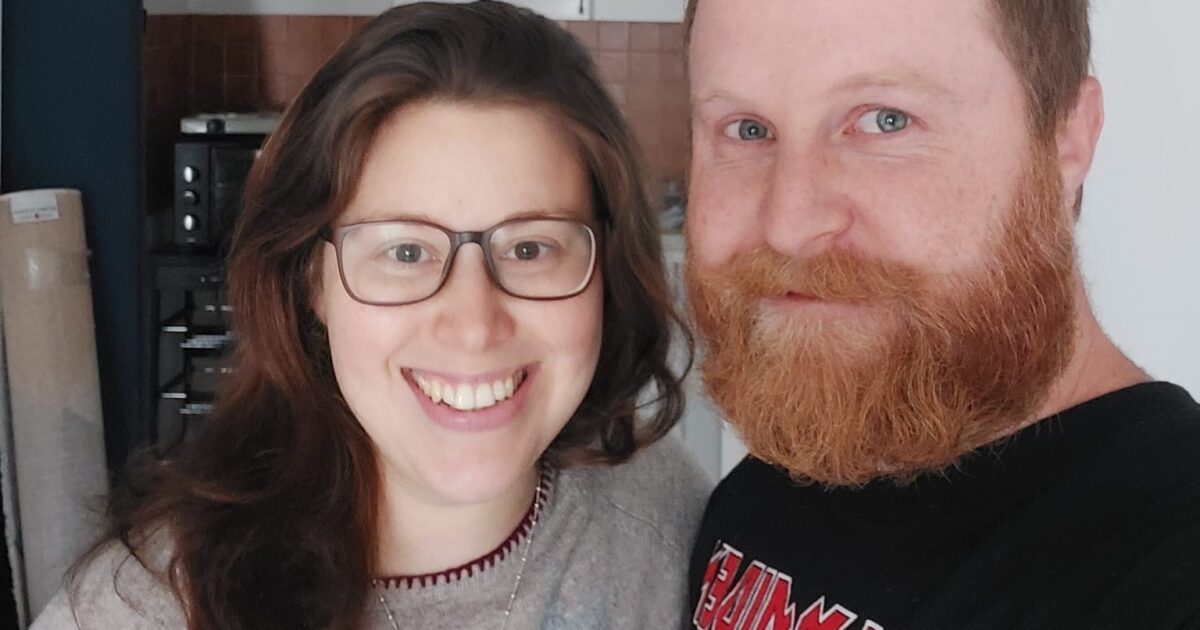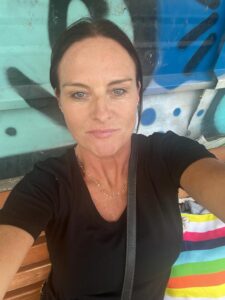Israel
War makes SA olim more determined to ‘go home’

Capetonian Mark Blumenthal made aliya with his wife in January this year and in doing so, they wanted to show their support for Israel and show the terrorists they weren’t afraid of “returning to our home”.
They weren’t alone. There has been a steady flow of olim from South Africa throughout the war. Thirty-nine people made aliya in December 2023 alone, the same number as in December 2022. There were 248 olim from South Africa in 2023. According to Telfed, 77 South Africans have made aliya since the war started on 7 October.
South African oleh Richard Bayer made aliya from Johannesburg exactly a year ago. He said that since the war started, though soldiers are more prominent on the streets, there’s more tension, posters up all over of Israeli hostages, and yellow ribbons on cars showing support for them, “our lives go on as normal”. Bayer last week celebrated his first aliya anniversary.
Johannesburg-born Shani Chai made aliya on 25 December last year. “All three of my siblings made aliya about 15 years ago,” this Herzlia High School alumnus says. “I always knew that one day I would join my family in the holy land.”

Chai initially hoped to make aliya a few months earlier, but was delayed by the limitation on flights due to the war and the number of reservists being called up.
“I come from a family where my grandparents escaped the Holocaust, and have always believed strongly in Zionism. My late mom always used to say, ‘There’s only one homeland for us and that’s the state of Israel.’ Her greatest wish was for all her children and grandchildren to live together in Israel. We’ve finally honoured her wish.”
Blumenthal, who worked in property management in Cape Town for 15 years, lived in Israel for four years with his family as a child, and he and his wife had travelled there a few times before.
“We always had a plan to leave South Africa around the age of 35,” he says. “Our reason was that we don’t believe South Africa is salvageable as a country. We don’t want ourselves or our children to be living there in the next 20 to 30 years, because I believe that something is going to snap at some point, and the only people who will weather the storm will be the ultra-wealthy. I do hope I’m wrong about this.”
Israel was originally last on the list of countries that Blumenthal considered immigrating to. However, he changed his mind amidst the fighting between Israel and Gaza during Operation Guardian of the Walls in 2021.
“From listening to and reading news from all over the world, and hearing opinions from the left and right of the political spectrum, I realised that as a Jew in South Africa, I had been fed a lie. The lie being that as Jews, we’re safe, at least, in the Western world.”
Having seen how the world reacted to Israel’s response to the attack on 7 October and the antisemitism that accompanied it, “a switch flipped in my head”, Blumenthal says. “I looked at my wife and said, ‘We need to be in Israel, a Jewish country where we don’t have to be scared to wear a kippah or Magen David necklace.’”
The war made Blumenthal and Chai more determined to make aliya. “We saw the level of antisemitism around the world, especially in Cape Town,” Blumenthal says. “We felt we would rather be in a bomb shelter with other Jews in Israel than drive past the Sea Point promenade and see the spray-painted swastikas or listen to the African National Congress declare its undying support for Hamas. Our thought process was, as Jews, we should no longer be living here and paying taxes to politicians who support the killing of Jews.”
Chai wanted to be in Israel with her eldest daughter, Jaime Ruth, who, at the age of 19, made aliya to help protect the country. “She was and still is my own personal hero,” she says.
Bayer and his wife, Lee-Anne Bayer, both teachers, had been to Israel before making aliya. “It’s very different coming on holiday compared to actually living in the country,” he says. “We decided to make aliya for a few reasons. My son has autism and the education programmes in Israel are more conducive to children with autism. My son has more opportunities here.
“My wife wanted to come to Israel to have greater freedom and to shed the stress and difficulties South Africa has been going through. I felt I needed to experience something new and different in my life.”
The atmosphere in Israel is sombre, Chai says. “Everyone has been affected in some way. The stark reminders of the atrocities carried out on 7 October are everywhere. Having said that, I’m blown away by the unity and unwavering support of all the people living in Israel. It makes me so proud to be a Jew and even more so when parts of the world condemn our nation for the response to the 7 October attack.”
Bayer is aware of the rise in antisemitism and brainwashing around the world. “People see what they want to see. They don’t want the truth.”
Chai says Israelis are appalled that South Africa took Israel to the International Court of Justice. “Our people in South Africa suffer every day and are robbed of basic needs. There’s absolutely no concern or empathy for its own people.”
In Israel, many apartments and businesses are draped proudly with the Israeli flag, Blumenthal says. “Some businesses have been closed for a while, presumably because the owners or workers are in the army. Speaking to some shop owners and taxi drivers, all say the same thing, that whatever happens, it cannot go back to how it was. They’ve all said the Gaza situation needs to change.”
Bayer offers the same advice for those making aliya during the war as he would at any other time. “Make sure your qualifications are suitable for jobs here. The school system for mainstream children is different to back home. Do your research about schools, and find out how much Hebrew your family needs. Work out what transport you’ll be using. Talk to South Africans who have lived in Israel for a while. Find out where your local councils are. You need to register for things like electricity. Make sure that you know where to convert your driver’s license.”
